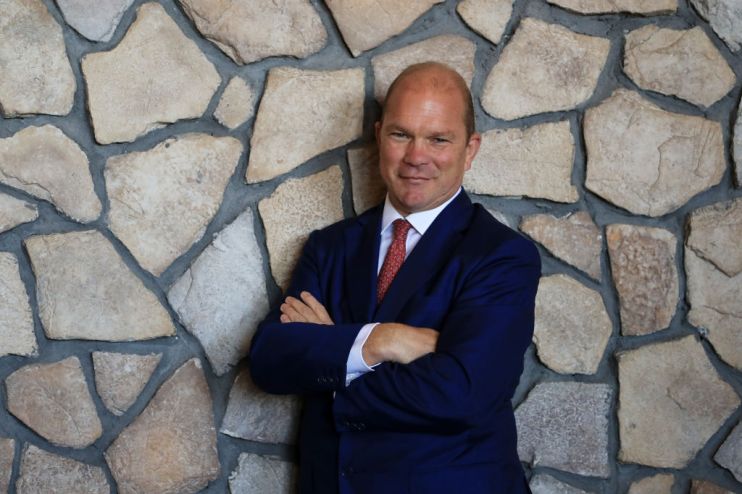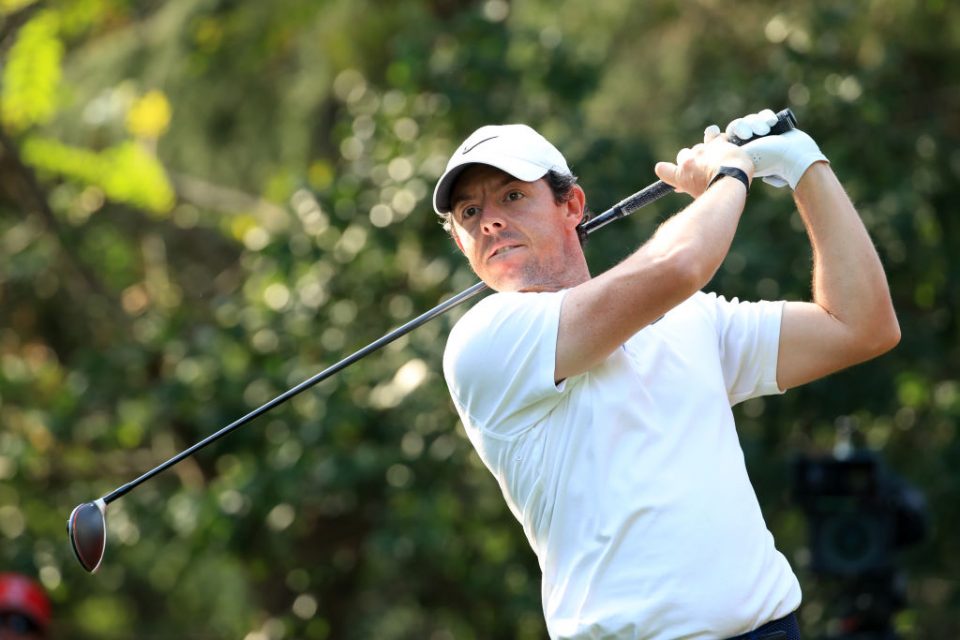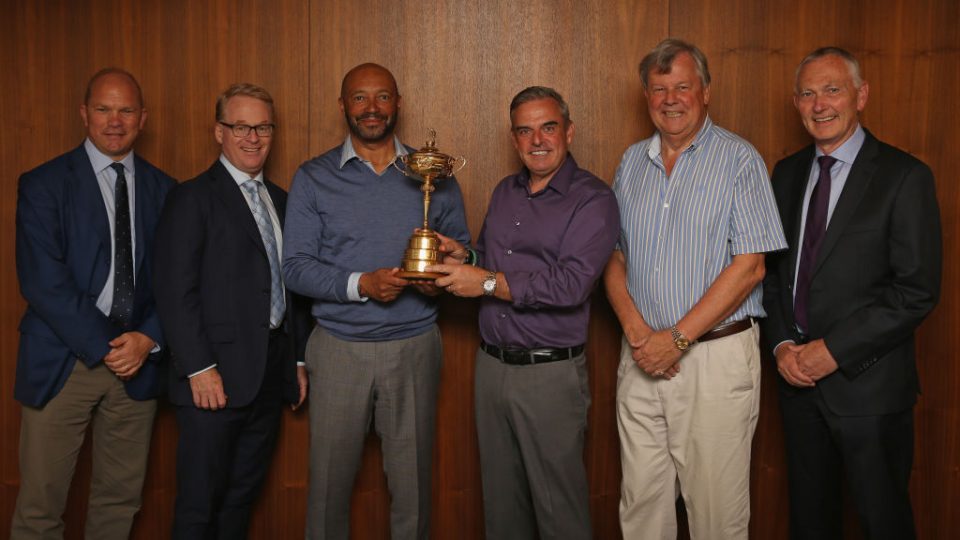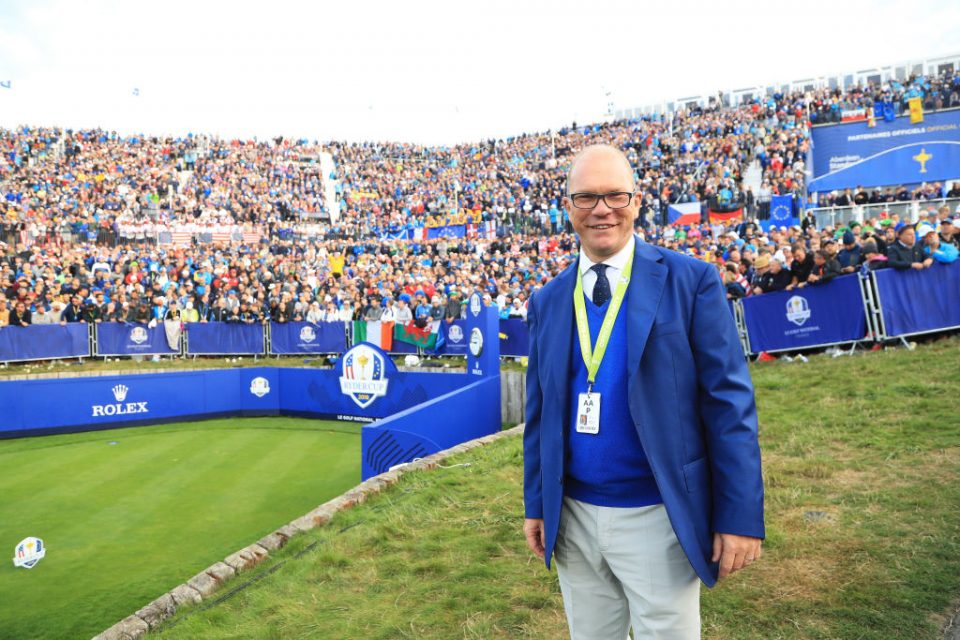Guy Kinnings interview: European Tour deputy CEO on growing the Ryder Cup, criticism from Rory McIlroy and the prospects of a single global tour

It has been an eventful first year in the job for Guy Kinnings, golf’s poacher-turned-gamekeeper.
The former agent to Colin Montgomerie and head of the sport at industry behemoth IMG joined the European Tour 14 months ago with a wide-ranging brief that includes maximising prize asset the Ryder Cup, overseeing all commercial activity and acting as right-hand man to blue-sky thinking chief executive Keith Pelley.
Within a fortnight Kinnings was being enveloped in the hubbub of Europe’s landmark triumph over the USA at Le Golf National in Paris and since then has helped assemble an all-star Ryder Cup committee that includes former Premier League boss Richard Scudamore, brought in new sponsors such as Callaway and shaped the European Tour’s revamped brand identity.
“I have absolutely loved the year,” Kinnings, 56, tells City A.M.
It has not all been a bed of roses for the tour, however – and thanks in no small part to the continent’s leading player.
Read more: Why Brooks Koepka’s dismissive comments can motivate Rory McIlroy
Rory McIlroy’s public flirtation with relinquishing his European Tour membership in order to focus even more on the PGA Tour caused embarrassment and, while Pelley did eventually succeed in bringing the Northern Irishman back on side, it was not long before McIlroy was criticising the circuit again, railing against its “too easy” courses.
Results over the last few days mean the tour has been spared the awkward prospect of its most conspicuous critic scooping its biggest prize, the Race To Dubai, later this week. Kinnings, very much a glass-half-full man, insists he would nonetheless have been “delighted” to see McIlroy win and is unapologetic at the efforts the tour makes to keep him happy.

“Rory has been the most fantastic supporter of us. When you think of the things he’s done as a player, his support for the Irish Open, he is a superstar, and when he plays he adds something to an event,” he says.
“The other thing about Rory is that he is very, very honest. If he sees things that he thinks can be improved, he will say – and we will listen. So we are not concerned with that at all. Obviously we’re going to listen to whoever has got useful input and Rory has very useful input.”
Global tour ‘would be good’
A tussle for McIlroy’s affections would not be necessary if the European Tour and PGA Tour merged to form one global tour – a possibility, albeit still remote, that Pelley has entertained and that Kinnings, too, concedes makes sense.
“Anyone would say that in an ideal world, with a blank sheet of paper, you would sit down and go ‘it would be good to have a global tour’. Absolutely, we will always be open to and happy to talk about how that can be considered,” he says.
“Equally, that’s not an immediately easy thing to deliver. We simply have to make sure that we, with all the other major governing bodies, produce a product that’s as appealing as it can possibly be to our fans.”

Players, too, must be kept happy – especially the sport’s biggest names, who tend to plan their schedules around the more lucrative PGA Tour.
“We’re very lucky: a lot of the leading players like to play globally, like to have new experiences, they have their own brands which need to be seen internationally,” he says.
“Being able to play at events that have a distinct style and history of their own is good for those players and certainly good for us – and we’ll keep doing all we can to attract them.”
Why did the European Tour rebrand?
This year’s brand relaunch was a reminder of what the European Tour believes makes it an appealing prospect for players and sponsors, namely its worldwide reach – it has events in Africa, the Middle East, Asia and Australia – and a greater willingness to experiment with new formats, including mixed tournaments and showcasing of disabled players.
“We know how the world order works, we know how strong the PGA Tour and the Majors are, but the European Tour is able to find a pretty unique position.
“The rebrand and [its slogan] ‘driving golf further’ is at the heart of what’s being done at the tour and is built around three pillars: we’re innovative, we’re inclusive and we’re global,” he says.
“All of that will allow us to attract new brands and partners. From my perspective, that’s where the change will be.
“We’ve had a very successful year in terms of renewing and adding new corporate partners. I think that will only grow across the tour and Ryder Cup as we continue to offer a product that has some differentiation from anything else in the game.”
The tour reported revenue of £337.7m and profit after tax of £10.3m for the year ending December 2018, yet growth is still in order.
Its finances are best viewed over a four-year cycle that incorporates both home and away Ryder Cups and, for the period 2015-18, the tour made a loss after tax of £7.9m.
Kinnings says it is not there to make a profit, but to provide the best playing opportunities and prize money that it can.
“It could always be better. Our goal is constantly to improve and generate more revenue through traditional b2b sponsorship, but also growing on the consumer side,” he says.
“In the middle of a poitical and macro-economic situation such as it is, I would say we are probably very satisified with how things have gone. We’re almost slightly defying the odds.
“It’s very difficult to get brands to commit long-term when there’s any degree of uncertainty. They wouldn’t be doing this unless they knew there was a return on investment.”
How to grow the Ryder Cup
A central plank of that growth strategy is the Ryder Cup, and specifically getting more commercial mileage out of the only event that attracts non-golf fans to the sport and which some industry observers are convinced remains under-exploited.
To that end the tour has assembled a committee that, alongside Kinnings and Pelley, includes Scudamore, Premiership Rugby boss Ian Ritchie and the founder of private equity firm Permira, Sir Damon Buffini.
“Studies showed [the 2018 Ryder Cup] generated €235m for the French economy, and yet we feel there’s even more to be done,” he says.
Kinnings is adamant there will be no meddling with the format, rather the emphasis will be on “developing commercial programmes, improving the product itself, maybe adding things to the week”.

He adds: “As part of that, you look at each venue – is there something you can make more of? The Junior Ryder Cup is a wonderful event and there’s maybe more that can be done with that. There’s been real interest around the celebrity events.
“There are things we can probably do in Rome [the next European host venue, in 2022] that we couldn’t do anywhere else.”
There is zero prospect of the bi-annual event being held every year, though. “Much as I can see the benefit of it in financial terms, you’d be messing around with what is a very, very successful product in a sporting sense and we won’t be doing that,” he says.
Kinnings’ appointment not only met with universal acclaim, and senior figures in golf have been quick to earmark him as a possible successor to Pelley.
“I had the most fantastic time working in golf outside the tour, I’m now having an even better time working here within the tour,” says Kinnings.
“I’m here to help and support the tour in any way I can but above all to support Keith in his role as CEO. Hopefully we can work very well together. I am really happy to be here and in the role that I am.”
Main image credit: Getty
